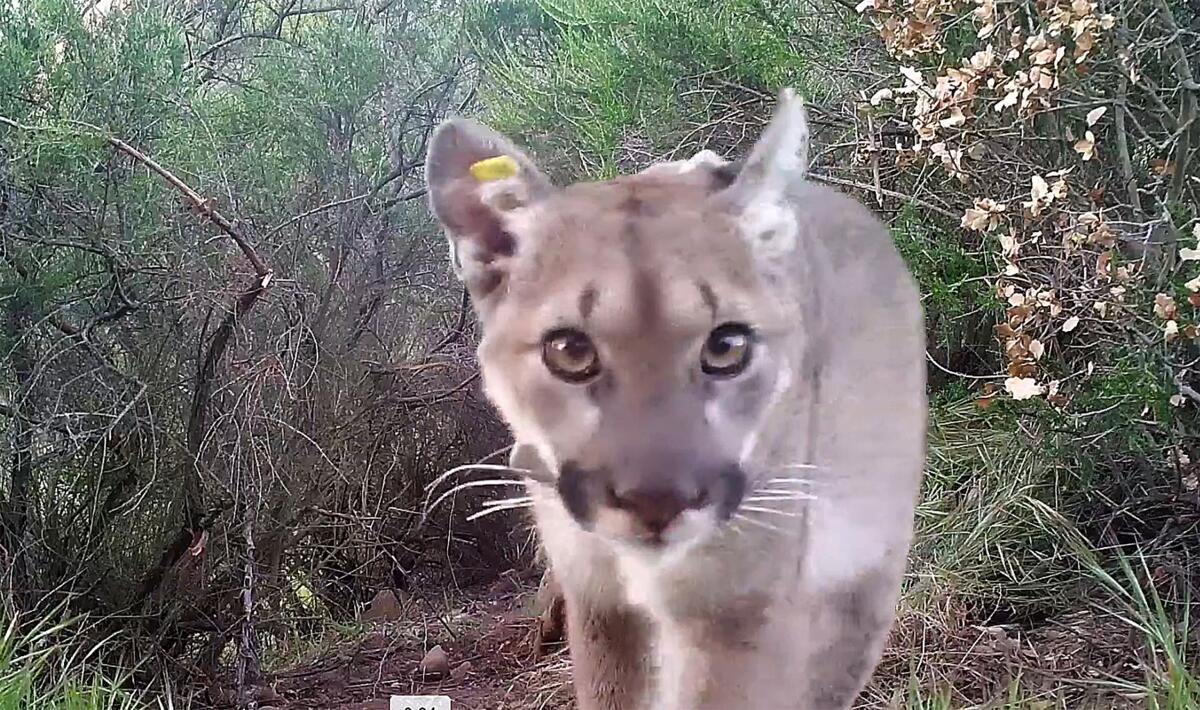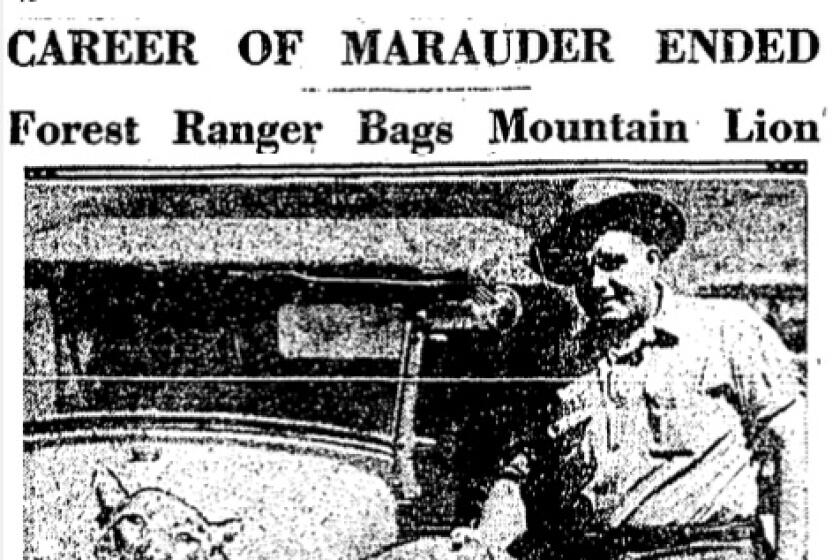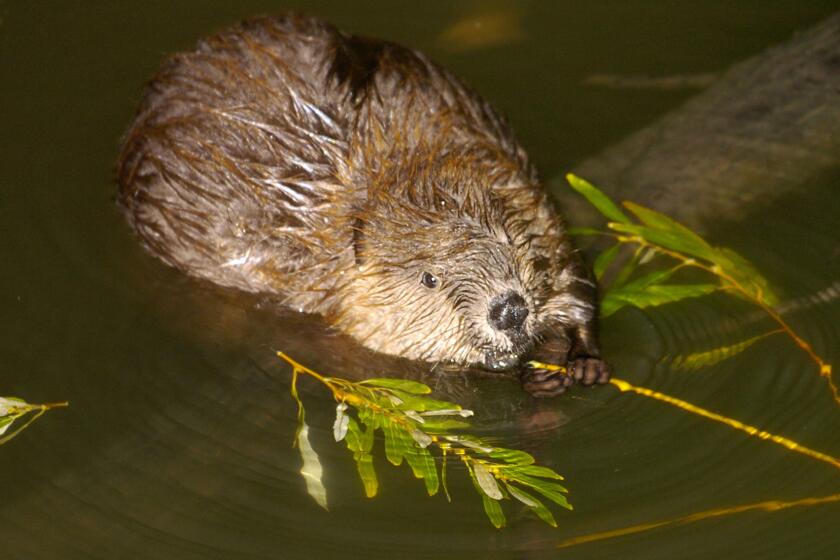Death of pregnant mountain lion underscores two human-caused dangers: Cars and rat poison

- Share via
An adult mountain lion that was struck and killed by a car in June was pregnant with four kittens at the time, and all five animals tested positive for rat poison — the first time officials have been able to test cougar fetuses, the National Park Service said Wednesday.
The 5-year-old mountain lion, designated P-54, was killed in the Santa Monica Mountains on June 17. She was struck around 9:30 a.m. on Las Virgenes Road between Piuma Road and Mulholland Highway, not far from where her mother was struck and killed by a vehicle in 2018.
At the time, P-54 was the 29th mountain lion killed by a vehicle since 2002 in the park service’s cougar study area — which includes the Santa Monica Mountains, Simi Hills, Griffith Park and the Santa Susana and Verdugo mountains — including 10 lions that had been collared and tracked by parks officials.
P-54 tested positive for five anticoagulant rodenticide compounds in her liver. A sixth compound, a neurotoxic rodenticide, was found in her fat tissue.
The state was essentially at war with cougars until the 1960s, when the bounties ended. As the big cats’ numbers declined, they came to enjoy more and more protections.
All four full-term fetuses were also exposed to anticoagulant rodenticides.
Researchers with the National Park Service said that 39 out of 40 local mountain lions tested, including the four fetuses, have shown the presence of anticoagulant rodenticides.
“This is the first time during our 20-year study that we’ve been able to test mountain lion fetuses for anticoagulant rodenticides,” Jeff Sikich, a biologist on the mountain lion project at the Santa Monica Mountains National Recreation Area, said in a statement.
Researchers study how mountain lions are affected by the urban landscape they live in, Sikich said.
“Unfortunately, we’ve learned that mountain lions are susceptible to rat poisons even before they are born,” Sikich said. “In this case, it is also unfortunate because the death of P-54 from a vehicle resulted in the loss of four other young mountain lions, two males and two females, that were about to enter the population.”
The collision with the vehicle caused traumatic injuries to P-54, including fractures to the ribs and left femur, which were the ultimate cause of death, according to authorities.
Wildlife officials launch a restoration program for North American beavers, saying their dams can increase water storage and create natural firebreaks.
Her body was taken to the California Animal Health and Food Safety Lab in San Bernardino for a necropsy and testing.
One of P-54’s previous offspring, P-97, was struck and killed by a vehicle on the 405 Freeway near the Getty Center in April. That mountain lion was 18 months old, according to officials.
Senior scientist Tiffany Yap with the Center for Biological Diversity said the deaths prove that California needs to invest in animal crossings for roads and freeways.
“The devastating death of P-54 and her four unborn kittens is a morbid reminder that we are driving our beloved pumas towards extinction,” Yap said.
A wildlife crossing spanning the 101 in Agoura Hills, which would provide animals a bridge as they search for food and mates, is scheduled to be completed in 2025.
More to Read
Sign up for Essential California
The most important California stories and recommendations in your inbox every morning.
You may occasionally receive promotional content from the Los Angeles Times.













